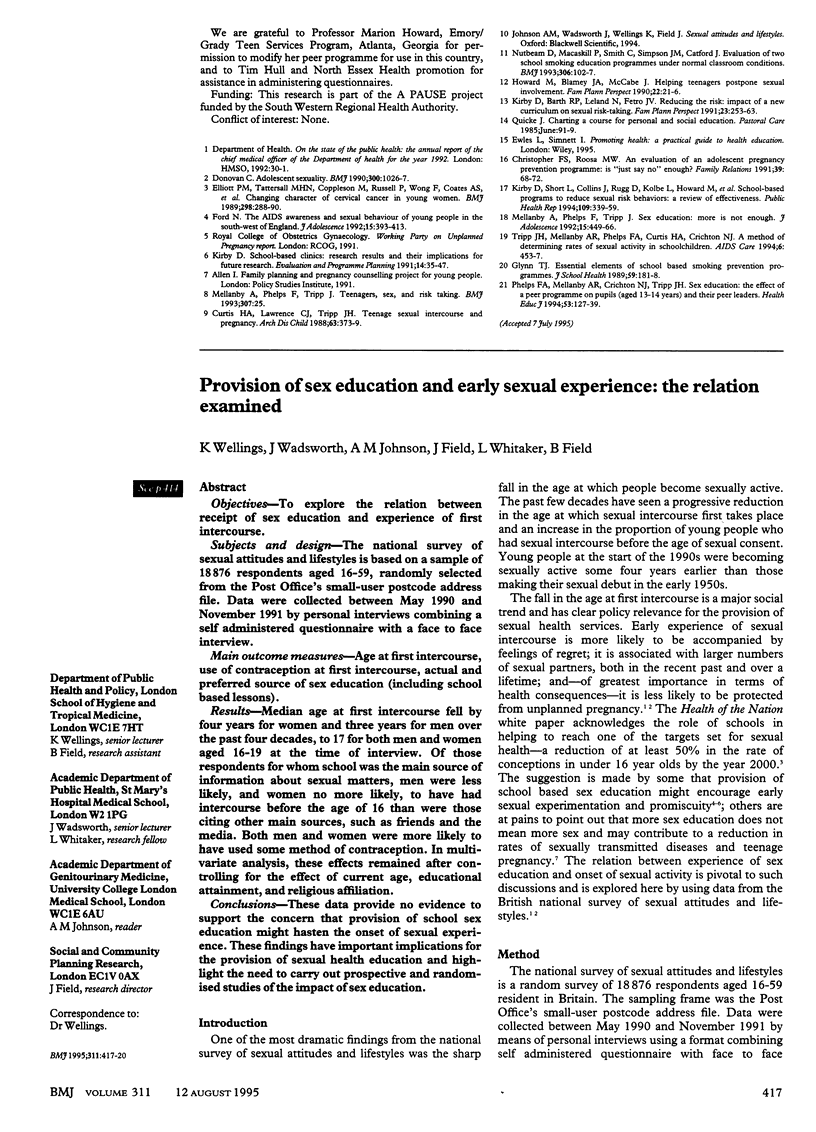Abstract
OBJECTIVES--To explore the relation between receipt of sex education and experience of first intercourse. SUBJECTS AND DESIGN--The national survey of sexual attitudes and lifestyles is based on a sample of 18,876 respondents aged 16-59, randomly selected from the Post Office's small-user postcode address file. Data were collected between May 1990 and November 1991 by personal interviews combining a self administered questionnaire with a face to face interview. MAIN OUTCOME MEASURES--Age at first intercourse, use of contraception at first intercourse, actual and preferred source of sex education (including school based lessons). RESULTS--Median age at first intercourse fell by four years for women and three years for men over the past four decades, to 17 for both men and women aged 16-19 at the time of interview. Of those respondents for whom school was the main source of information about sexual matters, men were less likely, and women no more likely, to have had intercourse before the age of 16 than were those citing other main sources, such as friends and the media. Both men and women were more likely to have used some method of contraception. In multivariate analysis, these effects remained after controlling for the effect of current age, educational attainment, and religious affiliation. CONCLUSIONS--These data provide no evidence to support the concern that provision of school sex education might hasten the onset of sexual experience. These findings have important implications for the provision of sexual health education and highlight the need to carry out prospective and randomised studies of the impact of sex education.
Full text
PDF



Selected References
These references are in PubMed. This may not be the complete list of references from this article.
- Johnson A. M., Wadsworth J., Wellings K., Bradshaw S., Field J. Sexual lifestyles and HIV risk. Nature. 1992 Dec 3;360(6403):410–412. doi: 10.1038/360410a0. [DOI] [PubMed] [Google Scholar]
- Mellanby A., Phelps F., Tripp J. Sex education: more is not enough. J Adolesc. 1992 Dec;15(4):449–466. doi: 10.1016/0140-1971(92)90074-f. [DOI] [PubMed] [Google Scholar]
- Wellings K., Field J., Wadsworth J., Johnson A. M., Anderson R. M., Bradshaw S. A. Sexual lifestyles under scrutiny. Nature. 1990 Nov 22;348(6299):276–278. doi: 10.1038/348276a0. [DOI] [PubMed] [Google Scholar]


